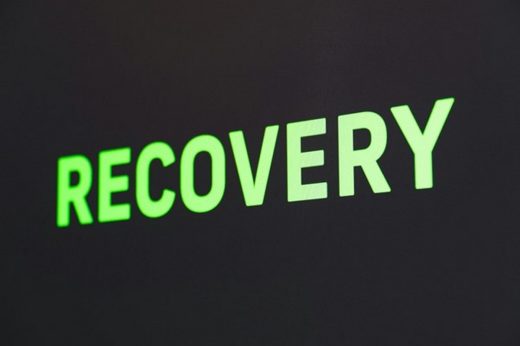Support systems in sobriety, Building a strong network for long-term success, Anxiety reduction guide
Support Systems in Sobriety: Building a Strong Network for Long-Term Success
22 April 2024
Achieving and maintaining sobriety is a monumental step in the lives of individuals grappling with addiction. However, the path to recovery extends far beyond the initial decision to abstain from substance use. It is a lifelong journey that requires not only immense personal willpower but also a robust support system to navigate the challenges and temptations that surface along the way.
This article seeks to underline the importance of building a strong network of support, comprising family, friends, professional counselors, and peer support groups, which collectively play a pivotal role in fostering a sustainable recovery and promoting long-term success in sobriety. By understanding the various facets of a support system and how to effectively leverage these resources, individuals in recovery can fortify their foundation in sobriety, paving the way for a healthier and more fulfilling life.
Peer Support Groups
Participation in peer support groups, such as Alcoholics Anonymous (AA) or Narcotics Anonymous (NA), provides a platform for sharing experiences, strengths, and hopes with others who are navigating similar paths to recovery. These groups operate on principles of mutual support, anonymity, and a shared commitment to sobriety, offering a unique sense of community and understanding that can be incredibly empowering.
The structured format of peer support groups, often centered around the 12-step program, offers a roadmap for recovery that many find helpful. Additionally, these groups facilitate mentorship relationships between newer members and those with longer sobriety, providing invaluable guidance, encouragement, and accountability.
You can also find sober living homes where you can stay with others in recovery, further fostering a supportive environment. Whether you need sober living in Los Angeles or any other city, these homes offer a sense of camaraderie and structure that can be beneficial for long-term success. It is important to note that peer support groups are not a substitute for professional counseling or treatment, but rather a valuable supplement to an individual’s recovery journey.
The Role of Family and Friends
Family and friends form the innermost circle of support in the recovery process. They provide emotional anchorage, understanding, and a sense of belonging that can significantly reduce the feelings of isolation and loneliness often experienced during recovery. By offering a non-judgmental ear, encouragement during setbacks, and celebrating milestones, loved ones can help maintain the motivation needed for long-term sobriety.
However, the dynamics within these relationships might need navigating with care, especially if past interactions have been strained by substance misuse. Open communication, setting boundaries, and possibly seeking family counseling are essential steps to rebuilding trust and fostering a supportive environment. Family members and friends can also benefit from education regarding addiction and recovery to better understand the challenges and how best to provide support.
Professional Support and Counseling
Engaging with professional counselors or therapists specializing in addiction recovery can provide individuals with tailored strategies to manage the complexities of sobriety. These professionals can help identify underlying issues contributing to substance misuse, such as mental health disorders, and work on developing healthier coping mechanisms. Additionally, they offer an objective perspective that can be crucial in overcoming personal blind spots and setbacks in recovery.
Continued professional support can also ease the transition through various stages of recovery, from initial detoxification to long-term maintenance of sobriety. Therapists can assist in setting realistic goals, monitoring progress, and adjusting recovery plans as needed, ensuring that the approach remains effective and responsive to an individual’s evolving needs.
Education and Awareness
Education plays a crucial role in both achieving and maintaining sobriety. Understanding the nature of addiction, recognizing triggers and warning signs of relapse, and learning effective coping strategies are foundational aspects of a successful recovery plan. This knowledge empowers individuals to take charge of their sobriety and make informed decisions about their health and well-being.
Awareness campaigns and resources can also aid in reducing the stigma associated with addiction, encouraging more people to seek help and support. Communities that foster an open dialogue about addiction and recovery can collectively contribute to a more supportive environment for individuals working towards sobriety.
Building a robust support system that encompasses various facets of peer support, family and friends, professional counseling, and education is crucial for long-term success in sobriety. By recognizing the value of these resources and actively engaging with them, individuals can strengthen their foundation in recovery and lead fulfilling lives free from substance use. Remember, recovery is a journey that does not end – but with a strong support system, individuals can confidently navigate the challenges and embrace the rewards of a sober life.
Comments on this guide to Support Systems in Sobriety: Building a Strong Network for Long-Term Success article are welcome.
Los Angeles Architectural Designs
Los Angeles Architectural Designs
Los Angeles Architecture Designs
Los Angeles Architecture Designs – architectural selection below:
Los Angeles-San Pedro Waterfront Connectivity Plan
Design: SWA Group

image courtesy of SWA Group
Los Angeles-San Pedro Waterfront Connectivity Plan
Robert Day Sciences Center, 888 Columbia Avenue, Claremont McKenna College
Design: BIG – Bjarke Ingels Group

image courtesy of architects practice
Robert Day Sciences Center Claremont McKenna College
Building Articles
Comments / photos for the Support Systems in Sobriety: Building a Strong Network for Long-Term Success page welcome.







